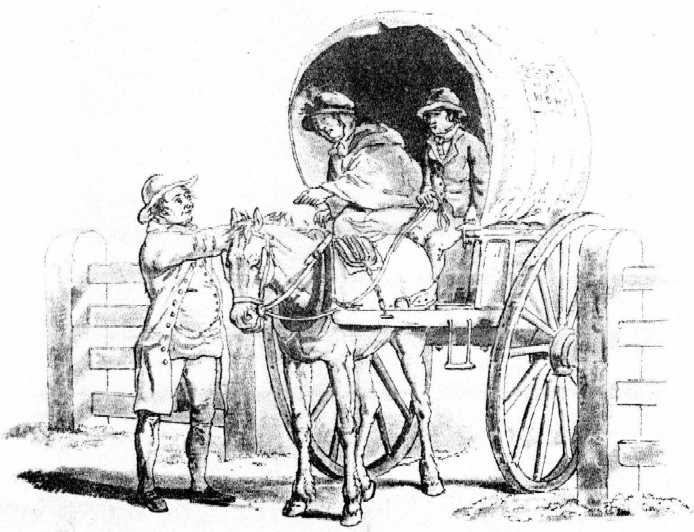|
The Road Through Harpenden |
|
The Road Through Harpenden |
The Tolls in the 1744 Act
... to demand and take for every Drove of Oxen or Meat Cattle, not exceeding the Sum of Ten Pence per Score, and not less than Five pence per Score, and so in proportion for any greater or less Number; for every Drove of Calves, Hogs, Sheep or Lambs, not exceeding Five Pence per Score, and not less than Two Pence Halfpeny per Score, and so in proportion for any greater or less Number; ...
[Other tolls would have been as in the earlier Act for the Bedford part of the turnpike]

The main reason for the turnpikes was to keep the through roads open for long distant traffic, and towns such as St Albans did not want the toll road to interfere with local trade. It is almost certainly for this reason that the first turnpike going north was at Har[pen]den, allowing local traffic to enter the Borough toll free. In addition the owners or drivers of any waggons, carts or other carriages, carrying corn, or any sort of grain to market on market days at St Albans were allowed to return toll free with an empty vehicle the following day. Arrangements were made to encourage travellers to break their journey at hostelries along the road. The toll tickets for coaches, berlins, landaus, chariots, calashes, chaises, chairs, waggons, wains, carts, carriages, horses, mares, geldings, mules or asses, oxen, sheep, lambs, hogs, or other cattle were valid for a continuing journey up until mid-day on the day after they were issued. There was also no toll on election days for coaches and passengers on horseback. Penalties of 20 shillings were payable for abusing the toll, for instance by taking one’s horse off the road to pass round a toll gate - or by using a day ticket issued to someone else.
<<< Back <<< Index >>> Next >>>
If you can add to the information given above please tell me.